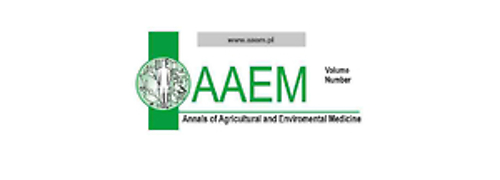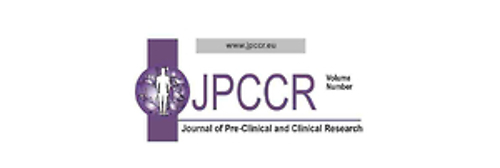Publication Ethics
As the editing team, the Editing Board and the Scientific Board aim at maintaing the highest quality of the scientific papers published in ‘Medycyna Środowiskowa - Environmental Medicine’, they make sure that all the intellectual rights are observed and the reliability of the content of the papers published in the journal is maintained in accordance with the ethical standards established by the Commitee on Publication Ethics (COPE) at all stages of the reviewing process.
Ethical principles
Obligations of Authors
Authorship
Authorship should be acknowledged only in the case of persons who have made a significant contribution into the conception and implementation of research, as well as into the interpretation of the published outcomes. Before an article is submitted to the publisher, it should be ascertained that all the authors have been acknowledged and that all of them have approved the final version of the text.
An explanation concerning “ ghostwriting” and “ guest authorship”
– The editors require from the authors of articles that they reveal the contribution of individual authors to the manuscript (quoting their affiliation and contribution, i.e. who is the author of the concept, assumptions, methods, protocol, etc., used while writing the manuscript), the primary author bearing the responsibility for the manuscript submitted.
– The editors explain that “ ghostwriting” (“ ghostwriting” is undertaken by a professional writer who writes books, articles, etc., based on detailed information provided, but the work is officially credited to someone else, without the name of the ghostwriter being mentioned) and “ guest authorship” (occurs when the contribution of the author is very little or not at all, despite which he/she is the named author/co-author of the manuscript) are a manifestation of scientific unreliability, and all detected cases will be disguised, including the informing of proper parties (institutions employing the authors, scientific societies, scientific editors associations, etc.).
Conflict of interests prevention
– The Editors request provision of information concerning the sources of financing the article, contribution of scientific-research institutions, associations and other parties (‘financial disclosure’).
– The editors document any manifestations of scientific unreliability, especially the breaking and violating of ethical principles in effect in science.
- All manuscripts submitted to the journal will be checked using plagiarism detection software
Submission standards
Articles submitted for publication in the journal must be original work, not subject to copyright owned by any third party, and not having been published before.
Mistakes detected after submission of text
Whenever the author discovers a mistake or an inaccuracy in a text that has already been submitted, they are obliged to promptly notify the editors of the fact.
Originality and plagiarism
Authors send in only original texts. They should make certain that the names and/or quotations used in their work are cited correctly. Plagiarism shall be treated as unethical and unacceptable.
Any infringement of the above described ethical principles are grounds for rejection of submitted articles.
Obligations of Editor-in-Chief and Editorial Board
-The Editor-in-Chief makes a preliminary assessment from the aspect of compatibility of the article within the scope of problems of journal, and in the absence of such compatibility has the right to reject the article.
- After qualification of the article for further processing, the manuscript will be sent to at least two reviewers.
- When submitting work the author is asked to provide the data (name and address e-mail) of the two suggested reviewers. Editorial Staff reserve the right decision whether to use or not the suggested reviewers in the review process work. Reviewer cannot be co-authored publications, or be affiliated in an author.
- Articles are reviewed anonymously, and subsequently the author(s) will become acquainted with the reviews without the surnames of the persons reviewing the articles being revealed (once a year, the journal publishes the list of cooperating reviewers).
- The surnames of reviewers of individual publications/issues are not revealed; once a year, the journal publishes the list of cooperating reviewers.
- The review is in written form (a review form is provided on the website of the journal) and ends with an unequivocal conclusion concerning the acceptance of the manuscript for publication or its rejection.
- Based on the review received, the Editor-in-Chief makes the decision concerning acceptance or rejection of the article for publication in journal.
- In the case when, according to the reviewers’ comments, the manuscript requires correction, the Editor-in-Chief may make the decision, after the necessary corrections have been made by the author(s), about the resubmission of the manuscript for further review.
- The article which has been accepted by the Editor-in-Chief of JPCCR is included in the registration process, and is ascribed a DOI number.
- An article ascribed a DOI number is published on the website of the journal and denoted as an accepted article, which awaits qualification for the specified issue of journal.
- The author(s) of articles accepted for publication are informed by mail concerning the positive decision about publication of the said article.
- The author(s) of articles which have not been accepted for publication are informed of this fact by mail.
Publication Ethics
As the editing team, the Editing Board and the Scientific Board aim at maintaing the highest quality of the scientific papers published in ‘Medycyna Środowiskowa - Environmental Medicine’, they make sure that all the intellectual rights are observed and the reliability of the content of the papers published in the journal is maintained in accordance with the ethical standards established by the Commitee on Publication Ethics (COPE) at all stages of the reviewing process
Ethical principles
Obligations of Authors
Authorship
Authorship should be acknowledged only in the case of persons who have made a significant contribution into the conception and implementation of research, as well as into the interpretation of the published outcomes. Before an article is submitted to the publisher, it should be ascertained that all the authors have been acknowledged and that all of them have approved the final version of the text.
An explanation concerning “ ghostwriting” and “ guest authorship”
– The editors require from the authors of articles that they reveal the contribution of individual authors to the manuscript (quoting their affiliation and contribution, i.e. who is the author of the concept, assumptions, methods, protocol, etc., used while writing the manuscript), the primary author bearing the responsibility for the manuscript submitted.
– The editors explain that “ ghostwriting” (“ ghostwriting” is undertaken by a professional writer who writes books, articles, etc., based on detailed information provided, but the work is officially credited to someone else, without the name of the ghostwriter being mentioned) and “ guest authorship” (occurs when the contribution of the author is very little or not at all, despite which he/she is the named author/co-author of the manuscript) are a manifestation of scientific unreliability, and all detected cases will be disguised, including the informing of proper parties (institutions employing the authors, scientific societies, scientific editors associations, etc.).
Conflict of interests prevention
– The Editors request provision of information concerning the sources of financing the article, contribution of scientific-research institutions, associations and other parties (‘financial disclosure’).
– The editors document any manifestations of scientific unreliability, especially the breaking and violating of ethical principles in effect in science.
- All manuscripts submitted to the journal will be checked using plagiarism detection software
Submission standards
Articles submitted for publication in the journal must be original work, not subject to copyright owned by any third party, and not having been published before.
Mistakes detected after submission of text
Whenever the author discovers a mistake or an inaccuracy in a text that has already been submitted, they are obliged to promptly notify the editors of the fact.
Originality and plagiarism
Authors send in only original texts. They should make certain that the names and/or quotations used in their work are cited correctly. Plagiarism shall be treated as unethical and unacceptable.
Any infringement of the above described ethical principles are grounds for rejection of submitted articles.
Obligations of Editor-in-Chief and Editorial Board
-The Editor-in-Chief makes a preliminary assessment from the aspect of compatibility of the article within the scope of problems of journal, and in the absence of such compatibility has the right to reject the article.
- After qualification of the article for further processing, the manuscript will be sent to at least two reviewers.
- When submitting work the author is asked to provide the data (name and address e-mail) of the two suggested reviewers. Editorial Staff reserve the right decision whether to use or not the suggested reviewers in the review process work. Reviewer cannot be co-authored publications, or be affiliated in an author.
- Articles are reviewed anonymously, and subsequently the author(s) will become acquainted with the reviews without the surnames of the persons reviewing the articles being revealed (once a year, the journal publishes the list of cooperating reviewers).
- The surnames of reviewers of individual publications/issues are not revealed; once a year, the journal publishes the list of cooperating reviewers.
- The review is in written form (a review form is provided on the website of the journal) and ends with an unequivocal conclusion concerning the acceptance of the manuscript for publication or its rejection.
- Based on the review received, the Editor-in-Chief makes the decision concerning acceptance or rejection of the article for publication in journal.
- In the case when, according to the reviewers’ comments, the manuscript requires correction, the Editor-in-Chief may make the decision, after the necessary corrections have been made by the author(s), about the resubmission of the manuscript for further review.
- The article which has been accepted by the Editor-in-Chief of JPCCR is included in the registration process, and is ascribed a DOI number.
- An article ascribed a DOI number is published on the website of the journal and denoted as an accepted article, which awaits qualification for the specified issue of journal.
- The author(s) of articles accepted for publication are informed by mail concerning the positive decision about publication of the said article.
- The author(s) of articles which have not been accepted for publication are informed of this fact by mail.
Publication Ethics
As the editing team, the Editing Board and the Scientific Board aim at maintaing the highest quality of the scientific papers published in ‘Medycyna Środowiskowa - Environmental Medicine’, they make sure that all the intellectual rights are observed and the reliability of the content of the papers published in the journal is maintained in accordance with the ethical standards established by the Commitee on Publication Ethics (COPE) at all stages of the reviewing process
We process personal data collected when visiting the website. The function of obtaining information about users and their behavior is carried out by voluntarily entered information in forms and saving cookies in end devices. Data, including cookies, are used to provide services, improve the user experience and to analyze the traffic in accordance with the Privacy policy. Data are also collected and processed by Google Analytics tool (more).
You can change cookies settings in your browser. Restricted use of cookies in the browser configuration may affect some functionalities of the website.
You can change cookies settings in your browser. Restricted use of cookies in the browser configuration may affect some functionalities of the website.




